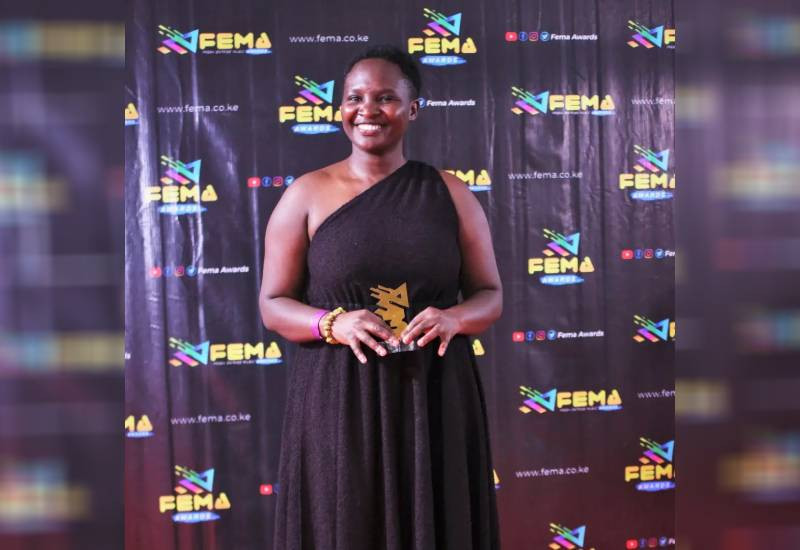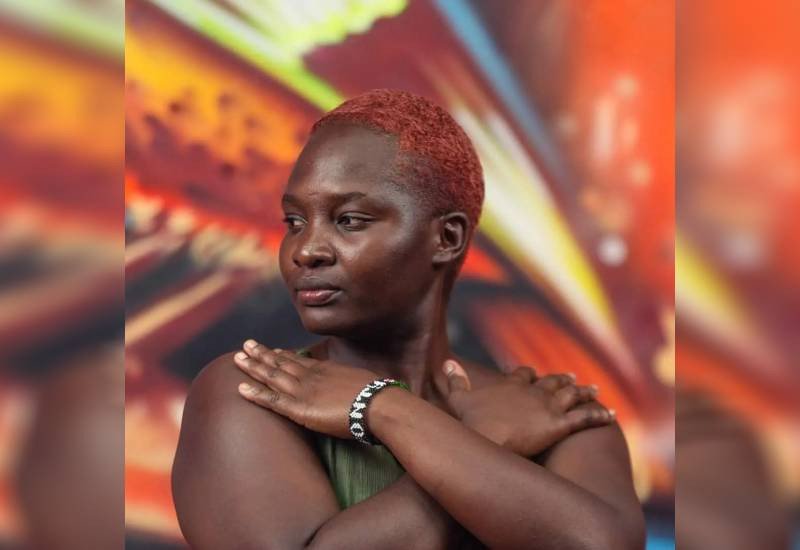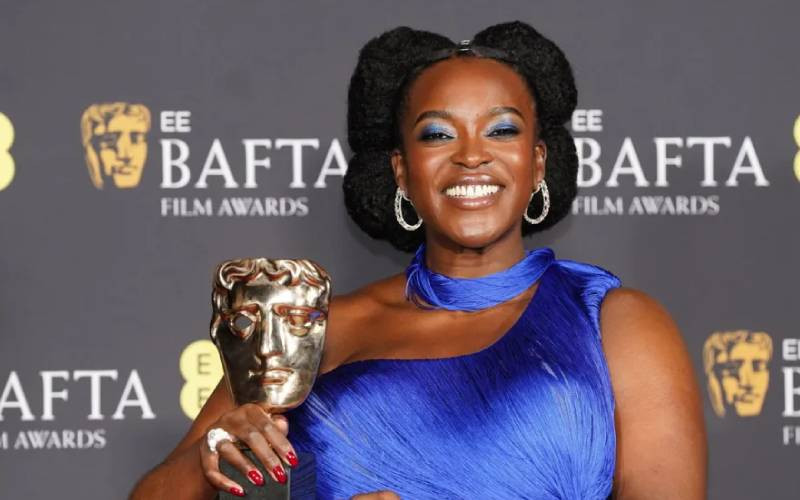
What is the story behind the name Spontaneous?
The short version of my response always is, because I am spontaneous on stage. My pieces keep evolving every time I am on stage, sometimes even the tune changes depending on the mood. But the history behind the name 'Spontaneous the Poet' is attached to one Robbin Omeka (Enigma Kreative). In 2013, we were tasked with finding artistic names during poetry engagements called 'Bush and Flowers'. We tried a couple of names that did not get to see the light of day. So, while taking a break he said, you know you are a spontaneous someone and that is how it hit us - that should be the name and so I became 'Spontaneous the Poet'.
How would you describe your work?
Spontaneous is an award-winning Kenyan-based poet, fusing both poetry and music in her performances. Guided by her life mantra 'live life, love love', she uses her art to educate, entertain and motivate; solely dedicating it towards influencing positive change in society. She is also a co-founder of an art-based initiative dubbed Anika Initiative. Anika aims to change the world, art at a time, towards effecting positive change. We have been in existence since August 2015 working under five thematic areas that include Youth and Migration, Art and Culture, Gender and Development, Democracy and Governance, and Environmental Action. Our key methodologies involve artistic expression, forums, social media activism, and capacity building. Other hats that I wear include social media strategist, creative entrepreneur, creative judge, researcher and facilitator. I am also a human trafficking awareness ambassador for HAART Kenya and a social activist at PAWA 254.
What projects are you working on?
My most recent project is a screening of a video that was launched during Mother's Day dubbed, African Woman under the Gaining Grip album (2018). Through this piece, I hope to create safe spaces for people raised by single parents to share their experiences in establishing and upholding relations amidst societal prejudice. We are planning for screenings in different parts of the continent depending on the support we receive. Our first screening will be happening in Rwanda during my tour set to happen from July 12 to 17 whereby aside from the screen, we will have an hour's performance showcase and mentorship sessions with female artistes from Rwanda. Under Anika Initiative, we are rolling out a five-month project starting this June whose focus is on mental health among refugees and host communities. We will be having artistic showcases intertwined with forums to interrogate the theme and also serve as a bridge for people in need of counselling services.

What do you mean by the term 'artivism'?
Artivism is the use of art for social change. Art is a powerful tool when it comes to creating awareness and rallying people towards influencing decisions and shifting systems. As a spoken-word artiste, my content is geared towards highlighting issues of concern that society is facing with a call to action. I am passionate about the prevention of human trafficking and having led a docket as a programmes officer at Peace Tree Network, I find myself diving more and more into the discourse of safe migration as a creative. This explains the facilitations I have been doing as an artiste at 'Beneath the BaoBabs' and the Kisima festival in Kilifi. As co-founder of Anika, we endeavour to pursue and implement artistic projects that are people-centred; that is, to gather information but also capacity build and strengthen communities towards pushing for their well-being.
What is the correlation between art and social justice?
I believe the role of art in society is not only to entertain but also to serve as a driving force towards the shaping of policies that ensure the positive growth of the citizens in a country. It speaks against human rights violations and hence plays a role in the accountability of systems and the leadership in place and most importantly reminds people that the sovereign power belongs to them. Art is a powerful tool. Were it not, songs like Wajinga Nyinyi by King Kaka, and Sheria by Sarabi Band would still be playing on the airwaves. In poems like Dear Mr President by Willie Oeba and Chess Board by Spontaneous the poet would receive accolades rather easily. And photographers like Boniface Mwangi, and Bonface Otieno would not have to receive threats over the work they do. This goes to show that indeed these works are people-centred.
What is the future of Kenya's creative industry?
The creative industry is finding its footing and finally, more artistes have a place to call home. People are being more receptive to various genres of art and are willing to spend on them hence making our livelihoods more sustainable. The spoken word scene has changed. We may not call it an industry yet but the vision is nearer its lifespan. Now we finally can check boxes as spoken word artistes nominated for a spoken word award as opposed to the earlier days when we would try to find our identity in music. We have a couple of spoken word artistes getting recognition for the works they do and can even negotiate for their worth. The number of poets practising is increasing day by day and now we can think of projects around masterclasses and branding.
If money was not an issue, what projects would you implement?
In this time and space, I have four main things. I tasted the art of lecturing about the politics of performance at Queens of Belfast University during the Covid pandemic and I desire to do more of those. I would also love to tour the world's healing hearts through my poetry and build communities of female artistes whose capacities enable them to sustain their livelihoods and mental health. Most importantly, I cannot wait for the day I will serve as an ambassador for the Kenyan spokenword poetry docket to be able to influence policies that will speak directly to our needs as a budding industry.
 The Standard Group Plc is a multi-media organization with investments in media
platforms spanning newspaper print
operations, television, radio broadcasting, digital and online services. The
Standard Group is recognized as a
leading multi-media house in Kenya with a key influence in matters of national
and international interest.
The Standard Group Plc is a multi-media organization with investments in media
platforms spanning newspaper print
operations, television, radio broadcasting, digital and online services. The
Standard Group is recognized as a
leading multi-media house in Kenya with a key influence in matters of national
and international interest.

